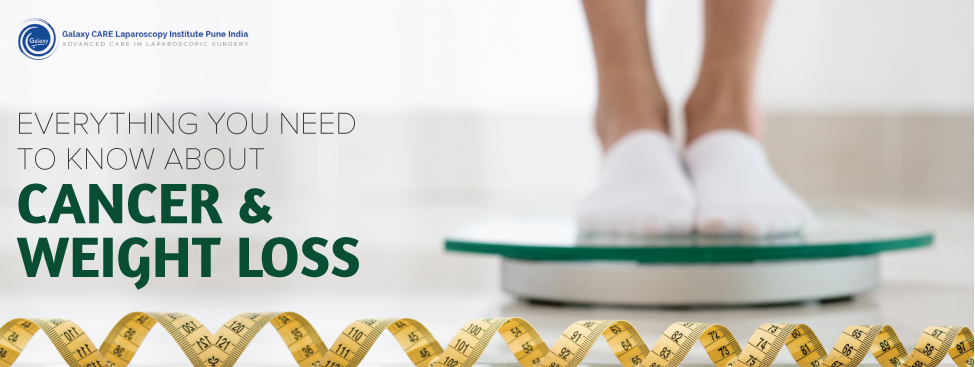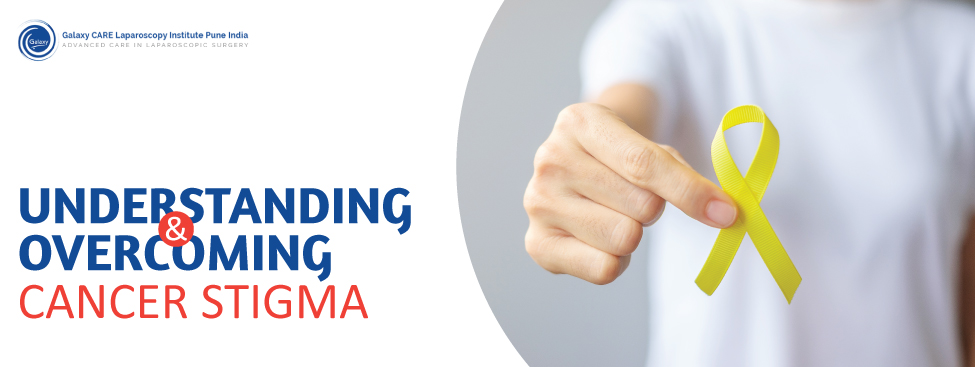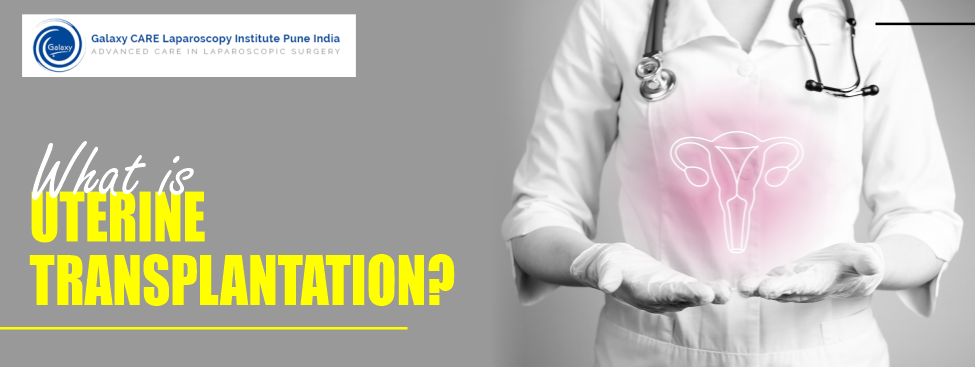
EVERYTHING YOU NEED TO KNOW ABOUT CANCER AND WEIGHT LOSS
Cancer and its associated treatments can have a significant impact on one’s weight and nutritional status. Unintentional weight loss is a commonly observed problem in many cancer patients due to the complex interplay between the disease itself and various therapies. At Galaxy Care Hospital, the Best Cancer Hospital in Pune, we say- maintaining a healthy weight and preventing excessive loss of body mass is extremely important for optimal cancer treatment outcomes and quality of life. However, it can be challenging for patients to achieve this given the range of physical and psychological issues triggered by the illness. This blog aims to provide a comprehensive overview of the causes of weight loss in cancer and the health implications, along with highlighting evidence-based strategies to address this problem.
Causes of Weight Loss in Cancer Patients
One of the primary drivers of weight loss stems from the direct effects of cancer on metabolism and nutritional requirements. The presence of tumour tissue and associated inflammatory responses causes an elevation in metabolic rate and resting energy expenditure. This significantly increases the number of calories the body needs each day just to maintain basic functions. At the same time, cancer may disrupt pathways involved in nutrient absorption and energy utilization, reducing the body’s ability to derive nutrition from food intake. These physiological alterations created an environment where weight loss becomes difficult to prevent without medical intervention.
According to the Best Oncologists in Pune– the biological effects of cancer itself and the side effects of cancer treatments are major drivers of weight loss in cancer patients. Some common causes include:
- Reduced food intake due to nausea, vomiting, taste changes, mouth sores etc. caused by cancer or chemotherapy. Treatments like radiation therapy can also damage the gastrointestinal tract.
- Increased metabolic rate and resting energy expenditure are caused by the presence of cancer and inflammatory responses in the body. This increases calorie requirements.
- Problems absorbing and digesting food due to damage to the GI tract by cancer or therapies. This reduces the body’s ability to utilize nutrients from food.
- Symptoms like pain, lack of appetite, early satiety, fatigue etc. which reduce one’s desire and ability to eat.
- Hormonal imbalances caused by cancer like increased levels of cortisol and catabolic hormones which promote muscle wasting.
- Depression and stress associated with the diagnosis which negatively impact appetite and eating patterns.
Health Impacts of Weight Loss in Cancer
Unmanaged weight loss reaching beyond 5% of baseline body mass is recognized as clinically detrimental for cancer patients. Loss of lean body tissue like skeletal muscle depletes functional reserves and weakens the body. This hampers treatment tolerance and increases the risks of side effects from aggressive therapies like surgery or high-dose chemotherapy. Additionally, without sufficient muscle stores providing protein for cell growth and repair, recovery from invasive procedures becomes challenging. Undernourished patients also experience greater fatigue impacting quality of life. Weight loss-induced immune suppression additionally predisposes to infections, a leading cause of mortality in this vulnerable group.
Key Nutrients for Cancer Patients
Our Cancer Specialists in Pune recommend adding nutrition to the diet of cancer patients. Adequate nutrition plays a role in wound healing, immune function and disease outcomes. It may alleviate side effects like fatigue, nausea, and mouth sores from therapies.
- Proteins: Lean meat, fish, eggs, dairy and legumes help maintain muscle mass and strength.
- Vitamins: Vitamins A, C, D, and E help reduce cell damage as antioxidants. B vitamins aid in converting food to energy.
- Minerals: Iron carries oxygen in the blood. Calcium and magnesium support nerve/muscle function.
- Hydration: Water and fluids keep cells functioning well and aid recovery. Dehydration can make side effects worse.
- Balanced Diet: Eating a variety of proteins, whole grains, fruits and veggies provides different nutrients. Improves well-being.
- Appetite issues: For poor appetite, supplements or liquid meals under guidance help meet nutritional needs.
Get Treatment From The Best Cancer Specialists in Pune
Galaxy Care Hospital is recognized as the Best Cancer Hospital in Pune. Led by an experienced oncologist Dr. Shailesh Puntambekar, the hospital brings to bear significant expertise in both surgical and non-surgical oncology. It has all the facilities required for comprehensive cancer management under one roof. This includes modern diagnostic technologies, personalized treatment planning, innovative surgical approaches as well as supportive therapies. Once at Galaxy Care Hospital, you can get compassionate care for cancer. We are always here to help you win the battle against cancer. Feel free to book an appointment with the Best Oncologists in Pune soon!


